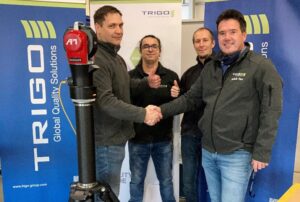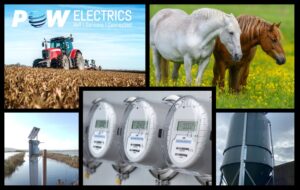When installing a new pharmaceutical manufacturing process, the design and implementation of hygienic fluid control systems is integral to performance. Separate procurement, delivery and commissioning suppliers can lead to a complex approach to project management. Alternatively, a specialist project partner, such as Bürkert Fluid Control Systems, can help resolve inefficiencies and provide the necessary expertise across mechanical, electrical and control automation aspects. Damien Moran, Bürkert’s Field Segment Manager for the hygienic & pharmaceutical sector, discusses the benefits of the combined project management approach.
A pharmaceutical manufacturing system project, typically managed by an engineering design consultant, often has to specify, procure, commission and support automation, valve and instrumentation component packages, as well as systems that span a variety of expertise. This ranges from automation, including control panels and pneumatic valve islands, to electrical and instrumentation, such as flow meters, sensors and electro-pneumatically actuated valves, to mechanical components, including manually operated valves. The end user might specify from an authorised supplier list, and the system integrator may suggest preferred brands. However, the design consultant has the responsibility to select fluid control components that integrate effectively, not only to ensure an optimised process but also to maximise efficiency of commissioning and reliability of operation in the field.
From fieldbus communications to certification approvals, the design consultant needs to handle the challenges associated with the integration of diverse brands for the automation, electrical and mechanical areas of a pharma project. Reasons for selecting multiple brands could range from cost to individual component preference, however this approach requires greater resources in management and coordination. Alternatively, the design consultant can work with a valve and instrumentation partner that assures effective integration of components across all areas. Such a partner can also provide project management and support from start to finish, including ongoing field support.
Fluidic design expertise
This starts with a design consultation and is potentially the area of greatest benefit to the overall effectiveness of a project as it provides the opportunity to check and optimise the system design using input from specialists in hygienic fluid control solutions. In Bürkert’s case, typical examples of providing design consultation and designing customised solutions include combining individual valves into a single, multi-port block valve solution to reduce the overall footprint, maintenance requirements and costs. System performance can be improved by minimising areas of dead volume with a manipulated drainable design alternative. In terms of automation, design advice can be provided on automation concepts such as centralised and decentralised control through to integration of digital communication protocols and the information/diagnostics which can be communicated.
Crucial to the design phase is the integration of valve and instrumentation models, into the piping and instrumentation diagram (P&ID) in order to create a full 3D model of the plant. This requires 3D CAD STEP files of all components that the designer can import into their plant model. A project partner like Bürkert will make these models available for simple and free access, downloadable from a website or provided directly. Useful input to design plans can also include a virtual fluidic simulator model that demonstrates a proof of concept. This can be used to resolve design queries and helps to qualify system performance pre-installation and create a more efficient roll out long term.
Global expertise & collaboration
Implementing the design requires careful and effective project management based on technical competence as well as commitment in support throughout, particularly to overcome the challenges presented in the real world. Bürkert’s model includes a local account manager plus the support of a dedicated pharmaceutical sector specialist, with direct access to a central Hygienic Competence team that coordinates global expertise. Many projects are international, based for example around a UK design consultant with various OEM’s and Contractors from around the world. These are supported by Bürkert’s international network of pharmaceutical project managers that enable easy communication for global projects and installations.
A key to design and project management includes ensuring that all required documentation, including certificates and approvals, is available. Due to the critical nature of approvals for the pharmaceutical sector, it’s vital that a project partner has the knowledge and experience to advise on the requirements of individual products, as well as if and how those approvals are met.
Support in commissioning – and beyond
During project installation, physical space is typically at a premium. Scheduled delivery of components staggered to match the project timeline is therefore important. While working with several individual suppliers can make this more of a challenge, a single project partner can efficiently manage this process. Deliveries need to include palletising with storage designations for specific areas of an end user’s plant, as well as customised tagging, labelling and packaging for easy identification in a potentially crowded installation environment.
While the engineering consultant tends to rely on an installer, technical support in set up may also be required, usually for electrical or automated aspects, such as a valve island or control valve commissioning. Providing this assurance alongside the handover of the project to the end user, as well as offering additional field support, is not only of practical value but also provides peace of mind.
To optimise hygienic pharmaceutical fluid control system design and implementation, the optimal approach is holistic project management, as opposed to treating the separate components as procurement commodities. This is particularly the case for systems that involve higher degrees of electrical and automation complexity. Delivering the successful integration of mechanical, electrical and automation packages is essential, and the support of a pharmaceutical specialist project partner throughout a project will ensure a more efficient process delivery as well as an optimised outcome for the end user.
 Instrumentation Monthly Test | Measurement | Control
Instrumentation Monthly Test | Measurement | Control









